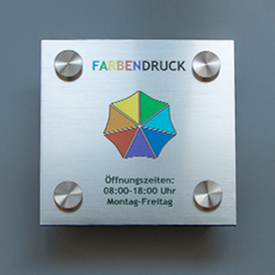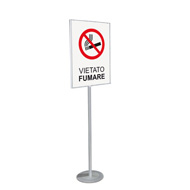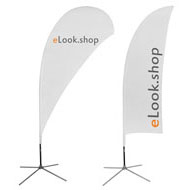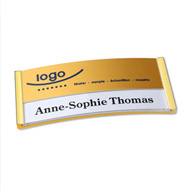Can employers ask for name tags?
Saturday, August 1, 2020
 Opinions are divided on the question of whether an employer can oblige its employees to wear name tags . The business owner often has a legitimate interest in his customers knowing who they are talking to. However, employees often prefer to avoid this because there is a risk that it will have an impact on their private lives. But what does the legislature say on the subject?
Opinions are divided on the question of whether an employer can oblige its employees to wear name tags . The business owner often has a legitimate interest in his customers knowing who they are talking to. However, employees often prefer to avoid this because there is a risk that it will have an impact on their private lives. But what does the legislature say on the subject?Legal regulations on name tags
Name is personal information that employers cannot easily use. Even if it does not seem plausible at first glance, the name tag is a processing of personal data .Admissibility is regulated by Art. 6 GDPR (lawfulness of processing). In practice, this encoded text is not very helpful, because much is a matter of interpretation. The processing of the data and thus the order to wear a name tag is permissible under one of the following conditions:
There is consent from the employee .
The sign is required to comply with a legal obligation.
It is necessary for the performance of a task that is in the public interest
The legitimate interest of a person responsible or a third party makes it necessary to wear a name tag.
In addition to weighing up the interests of the employer and the employee, there is usually also the question of whether consent is necessary and in what form this must be given. Is the conclusion of an employment contract to be considered consent to wear a name badge? Is it enough if this is not mentioned in the contract but in a company agreement?
Consent Requirements
Mentioning an obligation to wear a name tag in the employment contract or in a company agreement is not sufficient , because Art. 13 GDPR regulates the information obligation when personal data of the data subject is collected. This means that the employer must inform every employee that there are name tags and what data is on them.Incidentally, consent is not required , but the employee can request correction or deletion. Whether he is entitled to this depends on whose interests prevail.
Since the topic is still very new, there are no supreme court decisions on the wearing of name tags. The assessment of the State Commissioner for Data Protection of the City of Bremen is currently a helpful guide.

weighing of interests
Employers have a legitimate interest in employees wearing name tagsto ensure that employees can address each other personally (e.g. in a large company),
To offer customers the opportunity to address employees by name in order to be served in a customer-friendly manner (e.g. in the catering area, in hotels, at trade fairs or on open house days ),
To enable customers to make a specific complaint to the employer by knowing the name of the employee (usually in positions with direct customer contact).
If the badge is only to be worn within the company and the employee has no customer contact, he cannot claim a legitimate interest in not wearing a name badge .
The situation is different when it comes to customer contact . The full name on the tag typically allows customers to locate the worker's home address. It is therefore to be feared that a dissatisfied customer will bother the employee in the private sphere. Unwanted attempts to make friends on social media or in the living environment are also possible if you know the name .
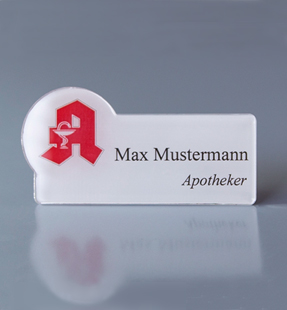
The data protection officer proposes a compromise
He advises to refer to Article 5 paragraph 1 letter c and Article 6 paragraph 1 letter f DSGVO and to demand data minimization. The legitimate interests of the employer are also safeguarded if the name tag only shows the surname .With a very rare name, however, this is quite sufficient to identify the person concerned. There is no clear rule for this situation.
Perhaps the employer agrees to use a pseudonym or to put the first name on the tag instead of the last name .








